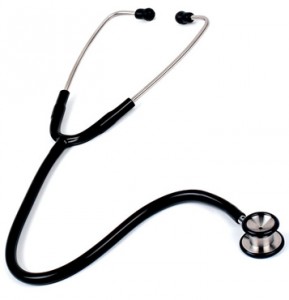Mental health disorders in Ghana said to be alarming
 Dr Gaynor Ama Ankamah, a Psychiatric at the Komfo Anokye Teaching Hospital (KATH), has expressed worry over the alarming rate of mental health cases being recorded in the country.
Dr Gaynor Ama Ankamah, a Psychiatric at the Komfo Anokye Teaching Hospital (KATH), has expressed worry over the alarming rate of mental health cases being recorded in the country.
Currently, one out of every four people has mental health disorder, a situation, which required urgent attention from the government or else would worsened in the next five to 10 years, she said.
This is basically due to intermittent shortages of mental health drugs which also impedes recovery process of patients.
In an interview with the Ghana News Agency (GNA) on the side-lines of a specialist psychiatric outreach programme held in the Nkoranza Municipality, Dr Ankamah, a second year resident psychiatric at the KATH said high unemployment, divorce and substance abuse were the major causes of mental problems in the country.
Specifically, she mentioned abuse of tramadol as the highest cases being recorded at the KATH, and called on government and the Ministry of Health to up measures to control the sale and abuse of the drug among the youth.
Dr Ankamah said cases were taking dangerous dimensions because many of the patients looked aggressive and could harm people if they were left to roam on the streets.
More than 100 people with diverse mental health problems in the Nkoranza Municipality benefited from the outreach programme, organised by MIHOSO International, a non-governmental organisation (NGO).
Beneficiaries were screened and supplied with medicines to enhance their recovery processes during the day’s exercise, which formed part of a mental health project being implemented by the MIHOSO and Basic Needs UK, an international NGO with funding from the Department of Foreign International Development (DFID).
Titled: “Enhancing Maternal Mental Health of 30,000 Pregnant Women and Mothers and Their Children to Realise Maternal and Child Health in Ghana”, the three-year project expected to end by 2020, was being implemented in 18 selected Districts in the Ahafo, Brong and Bono East Regions.
Dr Ankamah explained that though many mental health problems could not be treated, cases could be managed if patients put on drugs strictly adhered to the course and appealed to care-givers to support the patients.
She explained that mental health problem remained huge national challenge which affected all and called for concerted efforts to ensure effective management of cases for speedy recovery of patients.
Dr Ankamah dispelled the wrong societal perception that epilepsy was linked to witchcraft and curse, saying epilepsy could be treated if detected early among patients.
Mr George Kwame Osei, the Nkoranza South Municipal Mental Health focal person said about 1,088 new mental health cases had been reported at the Nkoranza Health Centre with epilepsy and substance abuse recording high figures.
He explained that many of the cases were also not specified, adding that, peri-natal disorders, schizophrenia and attempted suicides were also recording alarming trends.
Mr Osei said last year, about 16 cases of attempted suicide and 99 cases of epilepsy were reported, but regretted about lack of drugs for patients.
He added that drugs such as olanzapine, carbanazepam, phenobarbitone, chlrorpromazine, rasperidone, fluoxetine, amitriptyline and diazepam were needed urgently to aid the recovery process of patients and appealed to NGOs, and our development partners to support them.
Mr Osei also called on the government to ensure that mental health problems were covered under the National Health Insurance Scheme, since the drugs were costly and patients could not afford them.
Source: GNA
